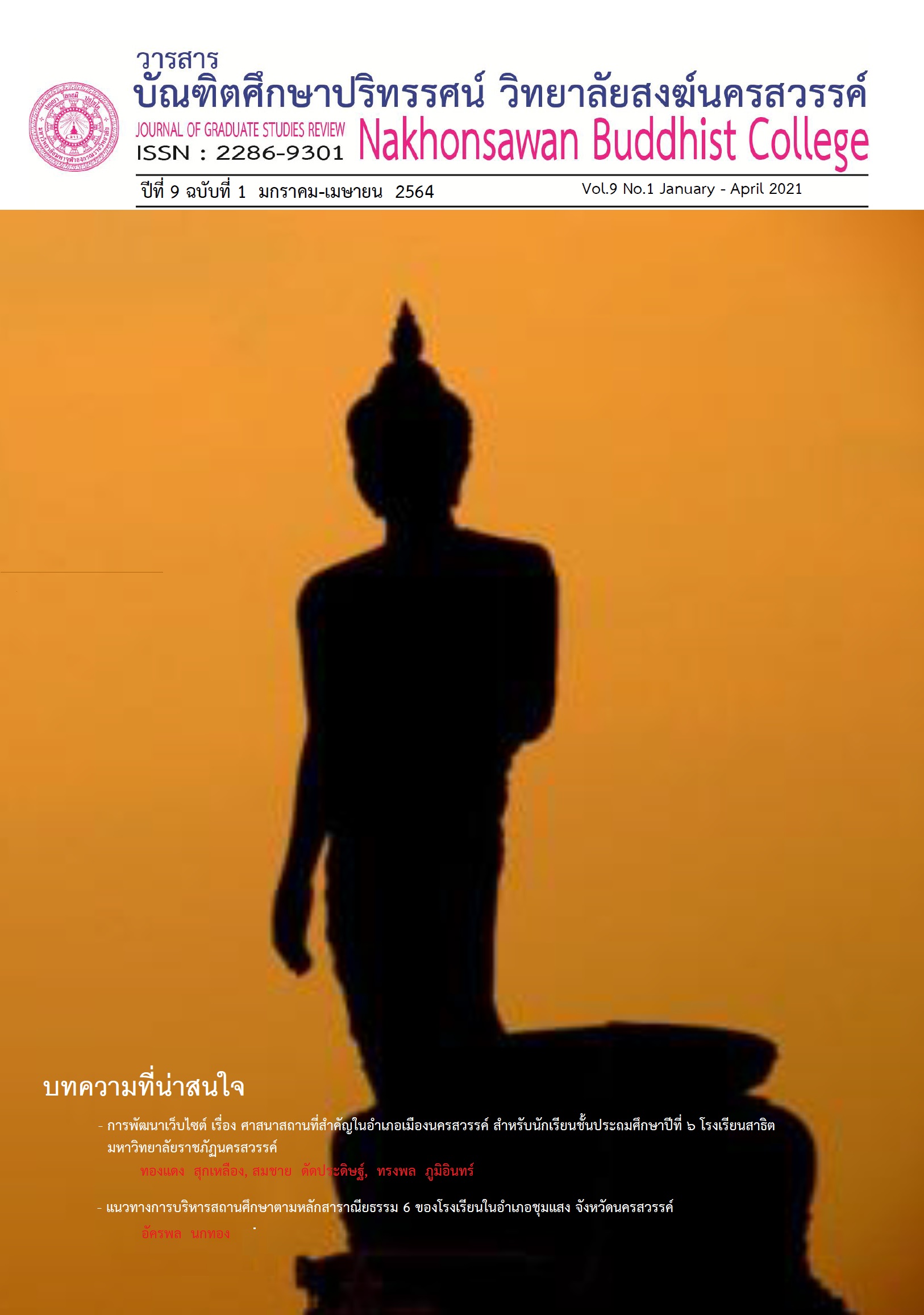Buddha’s principles for educational administration
Main Article Content
Abstract
It is considered a very important person in management. He must be a person with high qualities including knowledgeable, ability and morality as the Buddha said in the Tuthiyapaphanikha Sutta stated". The universe has wisdom, foresight, Withuro has expertise Nisayasampanno. He must hold interpersonal communication skills,” which is the person who determine (the success of the organization). For this article, presented the use of Buddhist methods in educational administration by applying Buddhist principles in administration such as the threefold principles used to improve quality of life in order to be successful. The guide the ruler Principles or administrators such as the Brahmavihara dhamma IV (Pāli:brahmavihāra, sublime states of mind) and the Sangahavatthu dhammas IV (four bases of social solidarity, saṅgahavatthu-dhamma), objects as well as the principles of self-possession (Sappurisa-Dhamma VII), (4 Dharma) ability to take the command and fully committed to the work (4 layouts of dharma)


